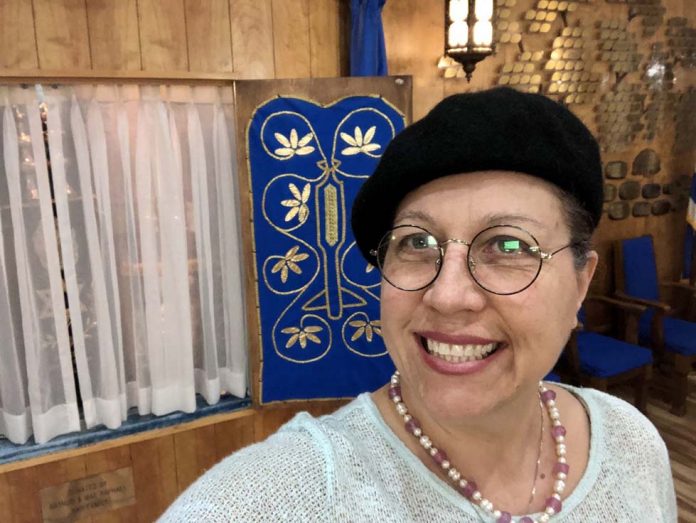Hefsiba “Jen” Cohen, Special to Valley News
This week’s Torah portion from Deuteronomy 26:1-29:8 is called “Ki Tavo.” It literally means “when you enter” and refers to Moses’ instructions to ancient Israel as they were entering into the Promised Land.
Last week’s Torah portion discussed the tithe donations that were to be given to the Levites who served as priests in the tabernacle and didn’t own their own crops or herds, as a rule. These tithes were also to encompass “tzedakah,” which are gifts of charity, that were to be given to those in need.
In this week’s Torah portion, the instructions for “giving” continue as Moses addresses the Israelites who are preparing to enter into the land. He reminds them that once established in the land, they will also have to bring sacrifices of the first fruits of their harvests to the tabernacle to thank God for all the goodness and sustenance of the land as well as show appreciation for all that God has done for them.
Moses also lists the blessings associated with observing the Torah’s laws as well as the “tochachah,” or rebuke, which lists an array of adverse things that could occur if God’s laws were abandoned.
Overall, an emphasis on “giving” comes to the fore. When the people of Israel are to enter their promised land, they are not just to revel in what they have been given, but they are to reciprocate in giving back – and to do so meaningfully.
In fact, Moses is letting Israel know that giving is actually vital for their survival, as it will create in them hearts for charity and mindfulness for the world around them.
Everyone has heard the adage, “It is better to give than to receive,” but it just sounds like flowery words unless they actually have experienced true and mindful giving, a phenomenon requiring care and sincerity.
To ensure that Israel would give wholeheartedly and not just mechanically to “check it off” the to-do list, the Torah said that the first fruit offering was to be given along with a recitation of the story of their redemption. They were to tell of their ancestors being slaves in Egypt, describing their plight of misery and their desperate call to God for deliverance. Then, they were to speak of the triumphant ending to this story – God freed their nation through miracles and ultimately brought them to the Promised Land. The final confession is “This is why I now bring the first fruits of the soil which you, O Lord, have given me.”
Retelling the story of their freedom reaffirmed why they were giving and, importantly, who they were giving to. God wanted Israel to be giving from a heart of sincerity and gratitude, creating a reciprocating relationship of giving and love.
Today, we can ask the question of ourselves – why do we give to God? What great things has God done in our lives? These are concepts to contemplate, especially during this time of year, the month of Elul.
This month more than ever, we are preparing our hearts for the holiest time of our Jewish calendar next month, the High Holidays, focusing on repentance and joyfully giving back to God.
Today, we no longer are required to give God the first fruits from our gardens, so what can we possibly give to God who, literally, has everything? The sages of Talmudic times remind us that our gifts and sacrifices to God should be replaced in the post-Temple era by three things: tzedakah or gifts of charity to those in need; our table or a place of community, worship and observance and heartfelt prayer or a giving of ourselves.
Hefsiba “Jen” Cohen, Ph.D., is a rabbinical scholar and adult educator.
Want to learn more about Judaism? Visit Congregation B’nai Chaim, which is located at 29500 Via Princesa in Murrieta. For more information, visit http://www.bnaichaim.com or find them on Facebook.









